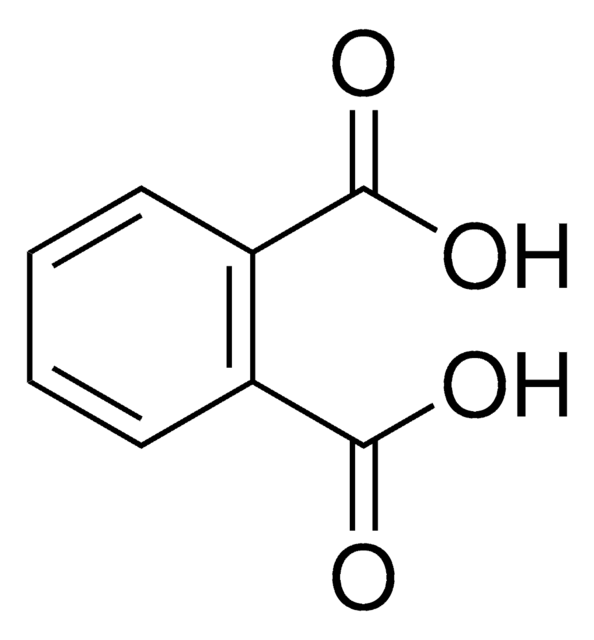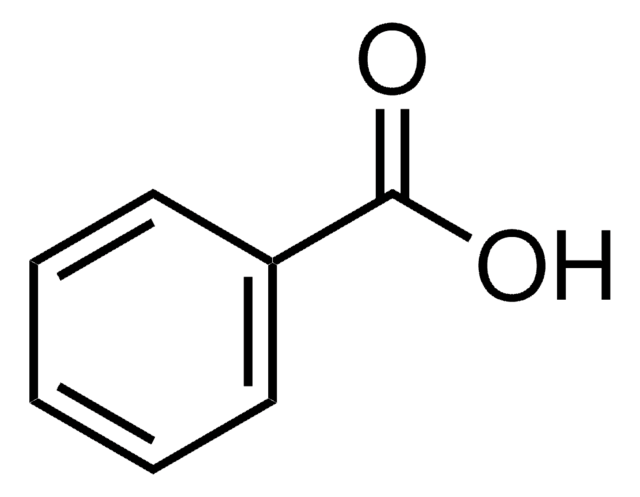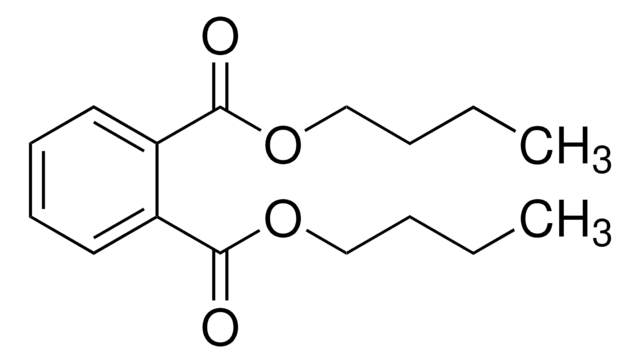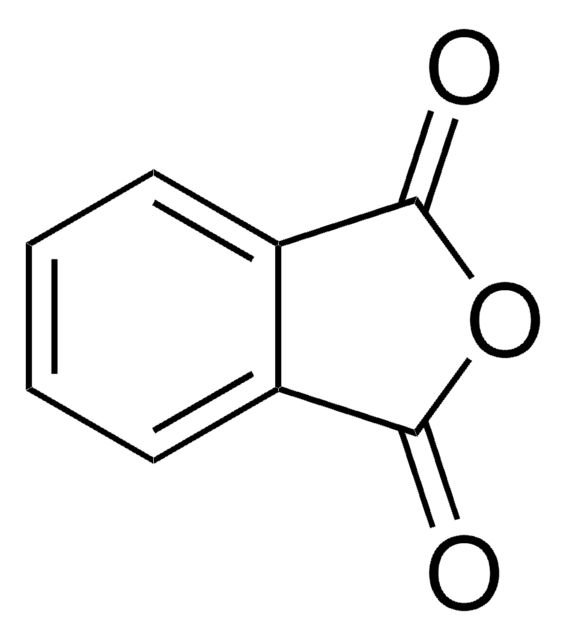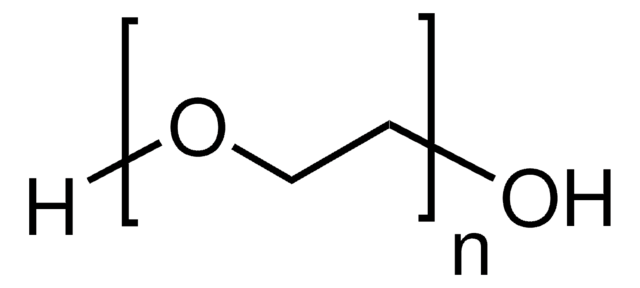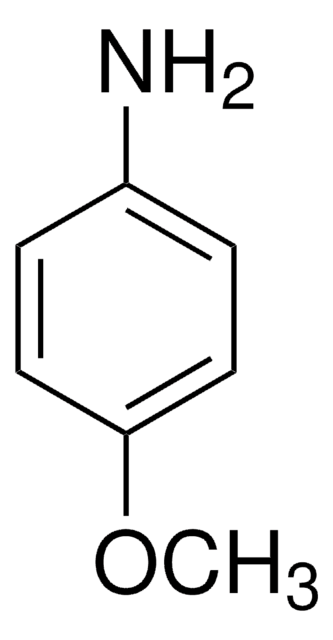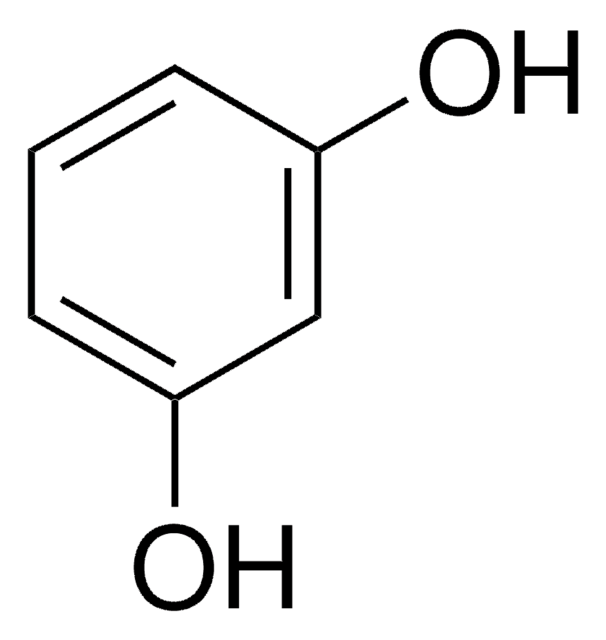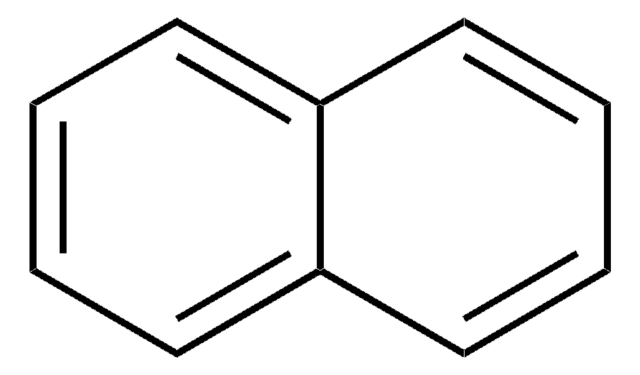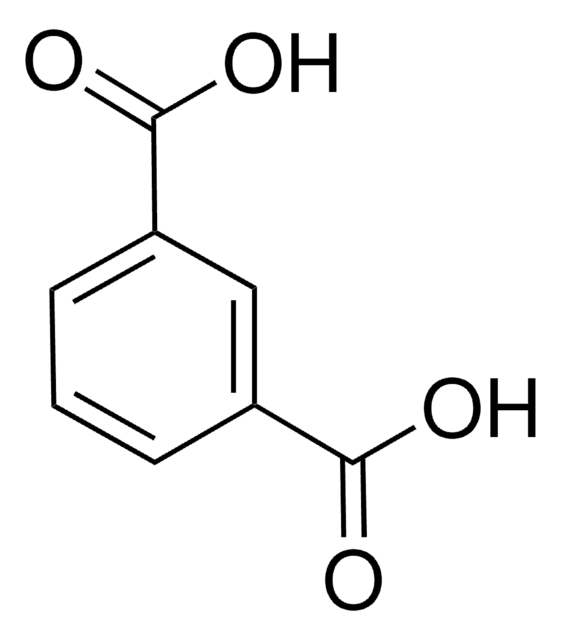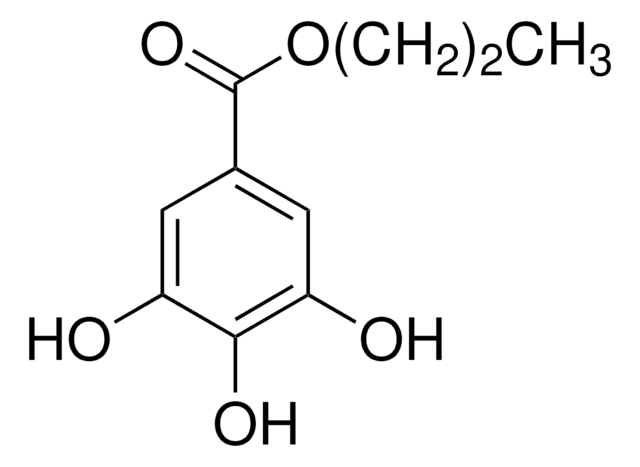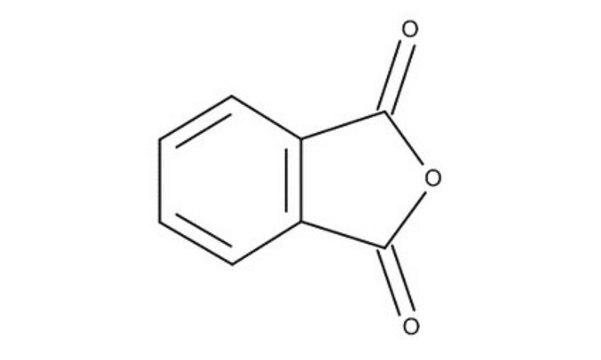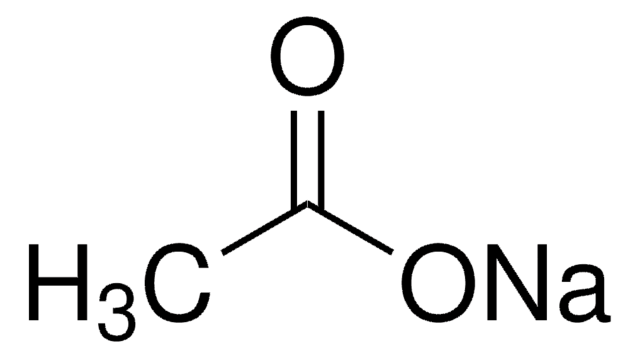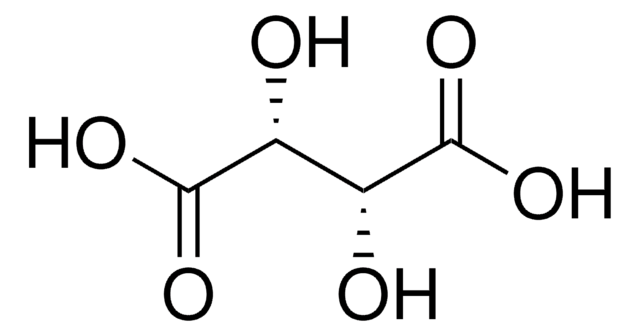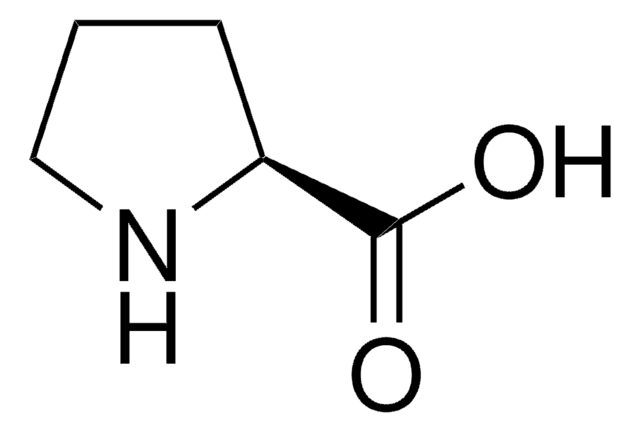402915
Phthalsäure
ACS reagent, ≥99.5%
Synonym(e):
1,2-Benzoldicarbonsäure
About This Item
Empfohlene Produkte
Qualität
ACS reagent
Qualitätsniveau
Assay
≥99.5%
Form
powder or crystals
Verunreinigungen
≤0.05% insolubles
≤0.5% water
Glührückstand
≤0.02%
mp (Schmelzpunkt)
210-211 °C (dec.) (lit.)
Anionenspuren
chloride (Cl-): ≤0.001%
nitrate (NO3-): ≤0.005%
sulfate (SO42-): ≤0.005%
Kationenspuren
Fe: ≤0.001%
heavy metals: ≤0.001%
SMILES String
OC(C1=C(C(O)=O)C=CC=C1)=O
InChI
1S/C8H6O4/c9-7(10)5-3-1-2-4-6(5)8(11)12/h1-4H,(H,9,10)(H,11,12)
InChIKey
XNGIFLGASWRNHJ-UHFFFAOYSA-N
Suchen Sie nach ähnlichen Produkten? Aufrufen Leitfaden zum Produktvergleich
Verwandte Kategorien
Allgemeine Beschreibung
Anwendung
Signalwort
Danger
H-Sätze
P-Sätze
Gefahreneinstufungen
Eye Dam. 1
Lagerklassenschlüssel
11 - Combustible Solids
WGK
WGK 1
Flammpunkt (°F)
334.4 °F
Flammpunkt (°C)
168 °C
Persönliche Schutzausrüstung
dust mask type N95 (US), Eyeshields, Gloves
Choose from one of the most recent versions:
Besitzen Sie dieses Produkt bereits?
In der Dokumentenbibliothek finden Sie die Dokumentation zu den Produkten, die Sie kürzlich erworben haben.
Kunden haben sich ebenfalls angesehen
Unser Team von Wissenschaftlern verfügt über Erfahrung in allen Forschungsbereichen einschließlich Life Science, Materialwissenschaften, chemischer Synthese, Chromatographie, Analytik und vielen mehr..
Setzen Sie sich mit dem technischen Dienst in Verbindung.